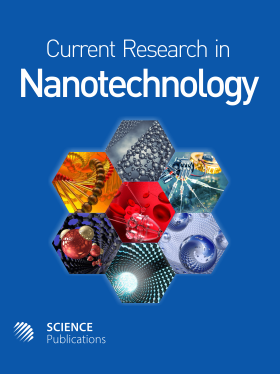Modelling of Digital Assisted Backend Correction Analogue to Digital Converters with Verilog-A
- 1 Harbin Institute of Technology, China
- 2 Tianjin University, China
Abstract
Problem statement: Pipelined architecture is considered to be the most suitable for high-speed and high-resolution applications among varies Nyquist Analogue to Digital Converters (ADCs) in nowadays digital signal processing domain. But the pipeline power consumption is growing with the technology scaling. For a pipeline ADC with high speed and high resolution, the fore-end track and hold amplifier and residual amplifier occupies the most power consumption of the whole system, so new and novel methods is needed to lower the amplifier power consumption. Approach: Different from the traditional use of close-loop amplifier, open-loop amplifier is used as the first-stage residual amplifier, which greatly decreases the system power consumption and design difficulty. To correct the nonlinear error introduced by the open-loop amplifier, backend digital correction is applied. To validate the rationality and correctness of the method and confirm the design parameters, Verilog-A is used to build a behavioural model, Cadence simulation tool Spectre is used to get the result. Results: From the simulation result of the behavioural model, we get the Differential Nonlinearity (DNL) of the digitally backend correction ADC is -0.25∼0.25, Integral Nonlinearity (INL) is -0.5∼0.25, Spurious Free Dynamic Range (SFDR) is 77.8dB. The Total Harmonic Distortion (THD) of the system after correction is calculated to be 73.66dB, so the Effective Number of Bits (ENOB) of the is 11.78 bits. Conclusion: Digitally assisted backend correction is a novel approach to lower the power consumption of pipeline ADCs, which makes great significance in mixed signal system design. The use of open-loop amplifier instead of traditional closed-loop amplifier can effectively decrease the design difficulty and design process than before. Only the first stage residual amplifier is changed to open-loop in this article and this substitution can also be replicated in the track and hold circuit and the succeeding stages.
DOI: https://doi.org/10.3844/ajnsp.2011.122.126

- 4,070 Views
- 3,287 Downloads
- 0 Citations
Download
Keywords
- Digital assisted backend correction
- open-loop amplifier
- Verilog-A modelling
- pipeline ADC
- hold circuit
- power consumption
- Total Harmonic Distortion (THD)
- Differential Nonlinearity (DNL)
- Spurious Free Dynamic Range (SFDR)
- Effective Number of Bits (ENOB)
- Analogue to Digital Converters (ADCs)
